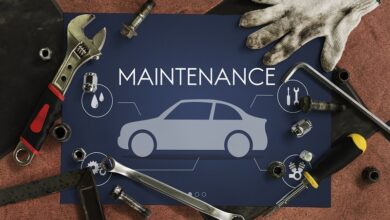Notes When Buying a Car on Installment
Purchasing a car is a significant milestone in many people’s lives. However, not everyone has the financial means to buy a car outright. In such cases, buying a car on installment can be a viable option. It allows you to spread the cost of the vehicle over a specified period, making it more affordable. If you are considering buying a car on installment, there are several crucial notes you should keep in mind to ensure a smooth and satisfactory purchase. In this article, we will delve into these essential notes and provide you with valuable insights to make an informed decision.
Contents
- 1 Understanding the Terms of the Installment Plan
- 2 Assessing Your Financial Situation
- 3 Researching the Car’s Value
- 4 Choosing the Right Lender
- 5 Reviewing the Insurance Requirements
- 6 Inspecting the Car’s Condition
- 7 Negotiating the Terms
- 8 Reading the Fine Print
- 9 Considering Down Payment Options
- 10 Evaluating the Total Cost
- 11 Considering Early Repayment Options
- 12 Maintaining a Good Credit Score
- 13 Seeking Professional Advice
Understanding the Terms of the Installment Plan
Before committing to an installment plan for buying a car, it is vital to thoroughly understand the terms and conditions associated with it. Take the time to read through the agreement and pay attention to details such as the interest rate, monthly payment amount, repayment period, and any additional fees or charges. It is crucial to have a clear understanding of what you are signing up for to avoid any surprises or financial strain in the future.
Assessing Your Financial Situation
One of the most critical aspects to consider when buying a car on installment is your current financial situation. Evaluate your income, expenses, and other financial commitments to determine how much you can comfortably afford to pay each month towards the car loan. It is crucial to be realistic and ensure that the monthly payments fit within your budget without causing undue financial stress. Remember that defaulting on your installment payments can have severe consequences and negatively impact your credit score.
Researching the Car’s Value
Before finalizing the purchase, it is essential to research the value of the car you are interested in buying. Check the current market prices for similar make, model, and year to ensure you are getting a fair deal. You can utilize online resources or consult with trusted car dealerships to get an accurate estimation of the car’s value. This information will help you negotiate a better price and avoid overpaying for the vehicle.
Choosing the Right Lender
Selecting the right lender for your car installment plan is crucial. Research various lending institutions, such as banks, credit unions, and online lenders, to compare their interest rates, repayment terms, and customer reviews. Look for a reputable lender that offers favorable terms and has a track record of reliable customer service. A reliable lender will guide you through the process, answer your queries, and ensure a smooth transaction.
Reviewing the Insurance Requirements
When buying a car on installment, it is essential to consider the insurance requirements associated with the purchase. Most lenders will require you to have comprehensive insurance coverage for the vehicle until the loan is fully paid off. Research different insurance providers, compare quotes, and choose a policy that meets the lender’s requirements while providing adequate coverage for your needs. Remember to include the cost of insurance premiums in your overall budget.
Inspecting the Car’s Condition
Before finalizing the purchase, it is crucial to thoroughly inspect the car’s condition. If possible, take the vehicle for a test drive to assess its performance, handling, and any potential issues. Additionally, consider hiring a professional mechanic to conduct a comprehensive inspection to identify any hidden problems or mechanical issues. Inspecting the car’s condition will help you make an informed decision and ensure that you are purchasing a reliable and well-maintained vehicle.
Negotiating the Terms
When buying a car on installment, don’t hesitate to negotiate the terms of the purchase. From the price of the vehicle to the interest rate and repayment period, there may be room for negotiation. Research the market value of the car, gather information about other offers, and leverage this knowledge to secure the most favorable terms possible. Be confident, assertive, and prepared to walk away if the terms do not meetyour expectations or financial capabilities.
Reading the Fine Print
Before signing any documents or finalizing the purchase, it is crucial to carefully read the fine print of the installment agreement. Pay close attention to any clauses, penalties, or conditions that may have an impact on your ownership of the vehicle or repayment terms. Understanding the fine print will help you avoid any unexpected surprises or hidden costs in the future.
Considering Down Payment Options
When buying a car on installment, consider making a down payment if possible. A down payment can help reduce the overall loan amount, lower your monthly payments, and potentially decrease the interest charges over time. Evaluate your financial situation and determine if you have the means to provide a down payment. It can significantly impact the affordability and long-term cost of owning the vehicle.
Evaluating the Total Cost
While the monthly payment amount is an important consideration, it is equally crucial to evaluate the total cost of the vehicle over the duration of the installment plan. Calculate the total amount you will pay, including the principal amount, interest charges, and any additional fees. This will give you a clearer picture of the actual cost of the car and allow you to make an informed decision based on your budget and financial goals.
Considering Early Repayment Options
During the car buying process, it is worth inquiring about early repayment options. Circumstances may change, and you may find yourself in a position to repay the loan earlier than expected. Some lenders impose penalties or fees for early repayment, while others may offer flexibility in this regard. Understanding the early repayment terms can provide you with the flexibility and freedom to settle the loan ahead of schedule if desired.
Maintaining a Good Credit Score
When buying a car on installment, your credit score plays a significant role in the interest rates you are offered. Maintaining a good credit score is crucial for securing favorable loan terms and lower interest rates. Make sure to pay your bills on time, minimize your debt-to-income ratio, and regularly monitor your credit report for any errors or discrepancies. A higher credit score can save you money over the life of the loan.
Seeking Professional Advice
If you are unfamiliar with the car buying process or have concerns about your financial situation, it is wise to seek professional advice. Consult with a financial advisor or car-buying expert who can provide valuable insights and guidance tailored to your specific needs. They can help you navigate through the complexities of buying a car on installment and ensure that you make a well-informed decision.











